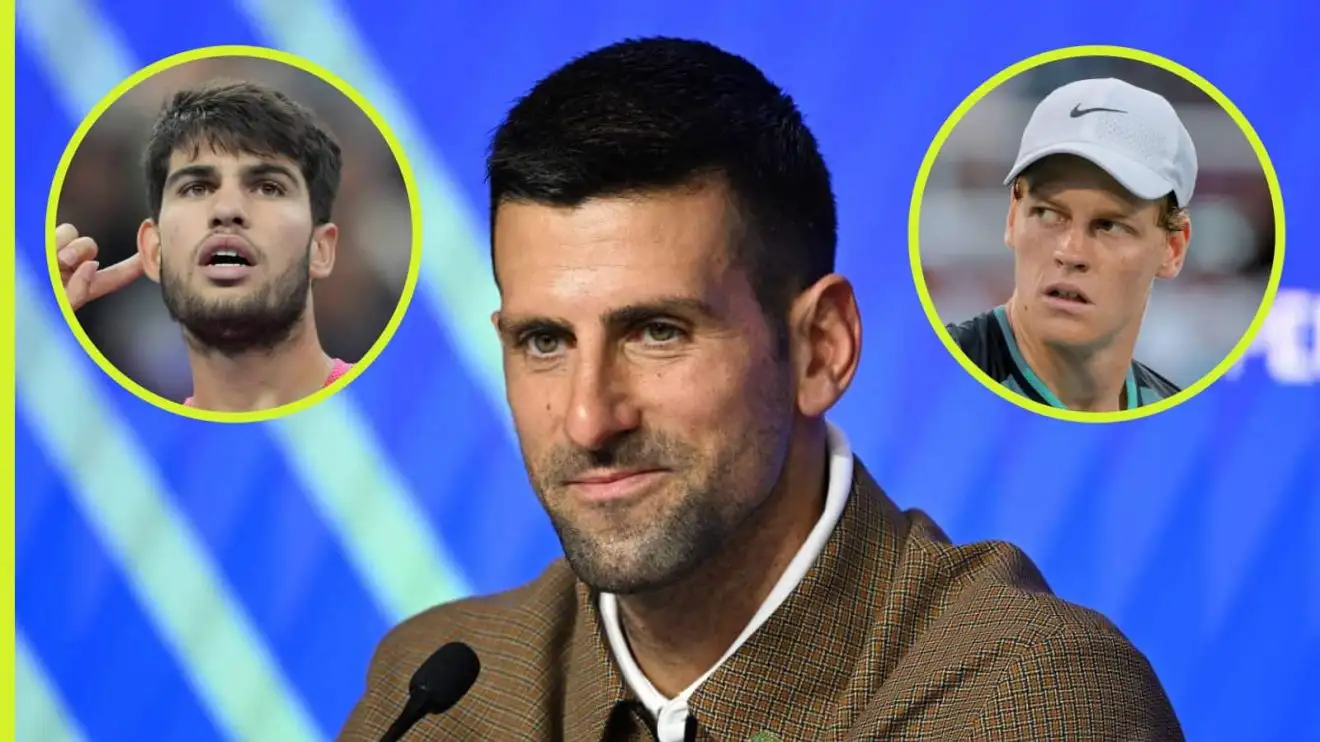
Novak Djokovic, the legendary Serbian tennis player, recently addressed the evolving landscape of tennis, noting that the sport is undergoing a significant “transition.” He emphasized the burgeoning rivalry between the young stars Carlos Alcaraz and Jannik Sinner, describing it as “incredible” and a vital element in attracting fans to the sport. However, Djokovic, at 37 years old, remains firm in his belief that he is not part of the “older guard” and that he still possesses the ability to compete with younger players.
### A Year of Contrasts
Djokovic has had an eventful year. He celebrated a record-extending 24th Grand Slam title at the 2023 US Open, a milestone that solidified his status as one of the greatest players in the history of the sport. Yet, despite this remarkable achievement, 2024 has not been as fruitful for the Serbian. This season marked his first Grand Slam-less year since 2017, a statistic that would typically raise eyebrows considering his illustrious career.
In 2024, both Alcaraz and Sinner emerged as formidable forces on the ATP Tour, each clinching two of the four Grand Slam titles. Sinner triumphed at the Australian Open and the US Open, while Alcaraz captured the French Open and Wimbledon. These victories highlight a significant shift in power dynamics within men’s tennis, where the younger generation is beginning to dominate the major tournaments.
Djokovic’s only title in 2024 came from his gold medal victory at the Paris Olympics, where he showcased his immense talent by defeating Alcaraz in the final. This win further cemented Djokovic’s status as a fierce competitor, even in a season where he has struggled to replicate his Grand Slam success.
### Reflecting on Transition and Rivalries
During a candid interview with *Vogue*, Djokovic was asked if he believed tennis was experiencing a “changing of the guard,” particularly in light of Roger Federer’s retirement and Rafael Nadal’s impending exit from the sport. Djokovic responded thoughtfully, challenging the notion that the transition is as clear-cut as some might believe.
“I don’t think it’s that black and white,” Djokovic explained. “If it is, I consider myself belonging to the older guard, unable to compete with the younger guys.” He acknowledged the presence of younger talent like Alcaraz and Sinner but also highlighted the resilience of players from his generation, such as Alexander Zverev, Daniil Medvedev, and Stefanos Tsitsipas, who have been top-ranked players and are likely to remain competitive for the foreseeable future.
Djokovic believes that while younger players are making headlines, the landscape of tennis includes a mix of established and emerging stars. “It’s definitely a transition, but it takes time. It’s a natural process,” he said, reflecting on how discussions about generational shifts in tennis have persisted for years.
### The Significance of Rivalries
One of the most compelling aspects of tennis, according to Djokovic, is the rivalries that captivate audiences. He pointed out that Alcaraz and Sinner have developed an “incredible rivalry” over the past year, one that has drawn interest not just from die-hard tennis fans but also from those who may not follow the sport closely. “People that don’t necessarily even follow tennis, per se, they do follow rivalries; they follow contrasts,” Djokovic noted.
This idea of rivalry is crucial, as it creates narratives that engage fans on a deeper level, providing compelling storylines that enhance the viewing experience. As Djokovic continues to compete at a high level, he is keenly aware of the need to foster rivalries that keep the sport dynamic and engaging.
### Looking Ahead
As the tennis world transitions, Djokovic remains a pivotal figure. His continued presence and performance in major tournaments are vital not just for his legacy but also for the sport’s evolution. He recognizes the challenge posed by younger players like Alcaraz and Sinner but is determined to remain a competitive force.
“I’m not done yet,” he seems to suggest with his ongoing commitment to the game. Djokovic’s journey is emblematic of a player who has not only shaped the history of tennis but also continues to adapt and thrive amid change.
In conclusion, as Djokovic navigates this period of transition in tennis, he does so with a sense of purpose and resilience. His reflections on rivalries, generational shifts, and his own place in the sport highlight a complex landscape where the past and future of tennis intersect. With the next generation rising, the future of the sport promises to be thrilling, and Djokovic is determined to play a significant role in it.
Leave a Reply